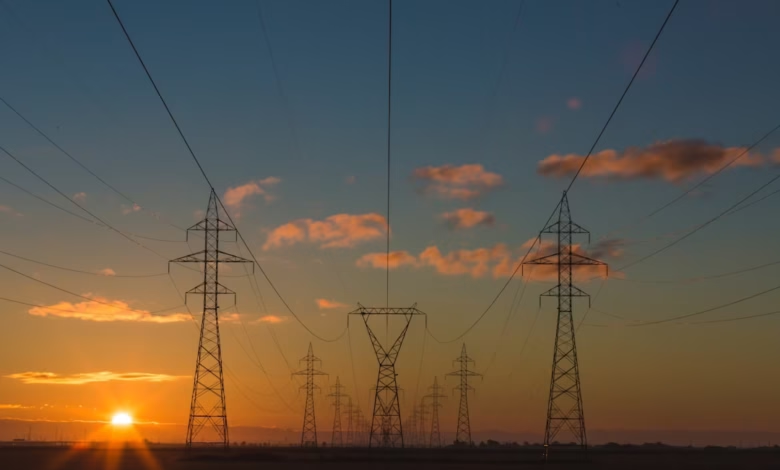The Environmental Impact of Oil: Understanding Spills, Emissions, and Market Trends in Energy Security

The environmental impact of oil is a pressing issue that affects ecosystems, economies, and communities worldwide. From the extraction of crude oil to its transportation and refining, every stage of the oil supply chain poses significant risks to the environment. Oil spills, emissions from offshore drilling, and the ecological damage caused by oil refining operations underscore the urgent need to address these challenges. As the global oil trade continues to evolve with market trends driven by OPEC, shale oil production, and the increasing demand for oil alternatives such as biofuels, understanding the intricate relationship between oil consumption and its environmental repercussions becomes essential. This article delves into the environmental impact of oil, exploring the complete journey from oil exploration to the downstream oil technologies that shape energy security today. We will also examine how oil market fluctuations and geopolitical factors influence oil prices and the broader implications for sustainability and compliance in the industry. Join us as we navigate the complexities of oil's ecological footprint and discuss potential pathways toward a more sustainable energy future.
- 1. Understanding the Environmental Impact of Oil: From Crude Oil Extraction to Oil Transportation
- 2. Oil Spills and Emissions: The Ecological Damage of Offshore Drilling and Oil Refining
- 3. Navigating Oil Market Trends: The Role of OPEC, Shale Oil, and Oil Alternatives in Energy Security
1. Understanding the Environmental Impact of Oil: From Crude Oil Extraction to Oil Transportation
The environmental impact of oil is a complex issue that begins with the extraction of crude oil and extends through its transportation, refining, and eventual consumption. The journey of crude oil starts at oil fields, where extraction methods such as offshore drilling and shale oil production can lead to significant ecological disruption. These processes can result in habitat destruction, water contamination, and increased greenhouse gas emissions, which contribute to climate change.
Once extracted, crude oil is transported through an intricate network of oil pipelines, storage facilities, and shipping routes. This oil transportation phase is fraught with risks, including potential oil spills that can devastate marine ecosystems and coastal communities. The global oil trade, largely influenced by OPEC and market trends, dictates how oil is distributed, affecting not just energy security but also the ecological footprint of oil supply chains.
Following transportation, crude oil undergoes oil refining, where it is converted into various petroleum products, including gasoline, diesel, and petrochemicals. This downstream oil processing emits pollutants and greenhouse gases, further exacerbating the environmental impact of oil. Moreover, the refining process generates a significant amount of waste, which must be managed to comply with oil regulations and ensure environmental safety.
As the world grapples with the challenges posed by oil consumption and its associated ecological damage, there is an increasing emphasis on oil alternatives and biofuels. These alternatives present opportunities to reduce dependency on fossil fuels and mitigate the adverse environmental effects of oil. However, transitioning to these energy sources requires careful consideration of oil market trends and the geopolitical implications of oil investing.
In summary, understanding the environmental impact of oil involves recognizing the full lifecycle from crude oil extraction to transportation and refining. Addressing these issues is crucial for promoting sustainable practices and developing effective oil compliance measures that protect our planet while meeting global energy demands.
2. Oil Spills and Emissions: The Ecological Damage of Offshore Drilling and Oil Refining
The environmental impact of oil extends significantly beyond the production and consumption of crude oil; oil spills and emissions from offshore drilling and oil refining play a crucial role in ecological damage. Offshore drilling, a common method for extracting crude oil, poses substantial risks to marine ecosystems. When accidents occur, oil spills can devastate local wildlife, contaminate water sources, and disrupt entire food chains. The aftermath of such spills often leads to long-term ecological consequences, as the recovery of affected areas can take decades or even longer.
Moreover, the emissions generated during oil refining contribute significantly to air pollution. Oil refining processes release a variety of harmful pollutants, including volatile organic compounds (VOCs) and particulate matter, which can exacerbate respiratory issues and other health problems in nearby communities. These emissions not only affect human health but also contribute to climate change, adding to the urgency of transitioning to oil alternatives and more sustainable energy sources.
The oil market trends, influenced by OPEC and global oil trade dynamics, often prioritize short-term gains over environmental concerns. As oil prices fluctuate, companies may cut costs in safety and compliance measures, increasing the risk of spills and emissions. Additionally, the rise of shale oil production and the expansion of oil sands extraction have raised new concerns about the environmental impact of oil. These extraction methods can result in significant habitat destruction and increased greenhouse gas emissions, further complicating the landscape of energy security and oil consumption.
As oil prices remain volatile and the global demand for energy continues to rise, the need for robust oil regulation and effective oil compliance measures becomes paramount. By investing in oil technologies that minimize ecological damage and exploring biofuels and other oil alternatives, the industry can work towards mitigating the adverse effects associated with oil transportation and drilling. The pursuit of safer oil field services and improved oil storage solutions, combined with a commitment to environmental stewardship, is essential for addressing the ecological damage linked to offshore drilling and oil refining.
In conclusion, the relationship between oil production and ecological health is complex and fraught with challenges. As the world grapples with the environmental impact of oil, it becomes increasingly clear that a shift towards sustainable practices and energy sources is essential for preserving our planet's ecosystems.
3. Navigating Oil Market Trends: The Role of OPEC, Shale Oil, and Oil Alternatives in Energy Security
Navigating the complexities of oil market trends is essential for understanding the broader implications of crude oil on energy security and environmental health. The Organization of the Petroleum Exporting Countries (OPEC) plays a pivotal role in regulating oil supply and stabilizing oil prices, which directly impacts the global oil trade. OPEC's decisions, particularly regarding production quotas, can create significant fluctuations in oil prices, influencing everything from oil consumption to oil investing strategies.
In recent years, the emergence of shale oil has transformed the energy landscape. The United States, with its vast shale reserves, has increased domestic production, reducing reliance on imports and enhancing energy security. This surge in shale oil production has also led to advancements in oil technologies and exploration techniques, making it more viable to extract oil from previously unfeasible sources.
However, the environmental impact of oil remains a pressing concern. Offshore drilling and oil sands extraction pose serious ecological risks, including habitat destruction and water contamination. Oil refining processes and petrochemicals contribute to emissions that exacerbate climate change, making it crucial to consider oil alternatives. Biofuels and natural gas are increasingly viewed as sustainable options that can complement traditional oil sources and mitigate the environmental footprint of oil consumption.
Additionally, oil supply chains are under scrutiny as regulations tighten in response to climate change. Oil compliance and regulation are evolving to ensure that companies adhere to environmental standards, which influences oil transportation and storage practices. The dynamics of oil geopolitics further complicate these trends, as countries vie for control over oil reserves and influence in global markets.
As the energy landscape continues to shift, understanding these oil market trends is vital for stakeholders. Those engaged in oil price hedging and investing must navigate the complexities of supply and demand while considering the long-term implications of environmental impacts and the transition towards more sustainable energy solutions. Ultimately, the interplay between OPEC, shale oil production, and the rise of oil alternatives will shape the future of energy security and the global economy.
In conclusion, the environmental impact of oil is a multifaceted issue that encompasses various stages of the oil lifecycle, from crude oil extraction to transportation, refining, and consumption. The ecological devastation caused by oil spills and emissions, particularly from offshore drilling and oil refining, poses significant threats to marine and terrestrial ecosystems. As we navigate complex oil market trends influenced by OPEC, shale oil production, and the growing importance of oil alternatives such as biofuels and natural gas, it becomes increasingly crucial to prioritize energy security alongside environmental sustainability.
Investors and policymakers must recognize the significance of oil regulation and compliance to mitigate ecological damage while ensuring a stable oil supply chain. Advances in oil technologies can play a vital role in reducing the environmental footprint of oil exploration and production. As we consider our energy future, it is imperative to weigh the implications of oil consumption against the potential benefits of transitioning toward cleaner energy sources. By addressing the challenges posed by oil geopolitics and the volatility of oil prices, we can work towards a more sustainable energy landscape that honors both our economic needs and the health of our planet.
Ultimately, fostering a responsible approach to oil investing and prioritizing ecological preservation will be essential in addressing the environmental impact of oil and securing a sustainable future for generations to come.





